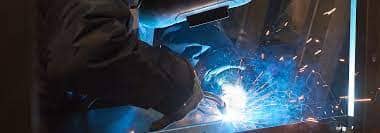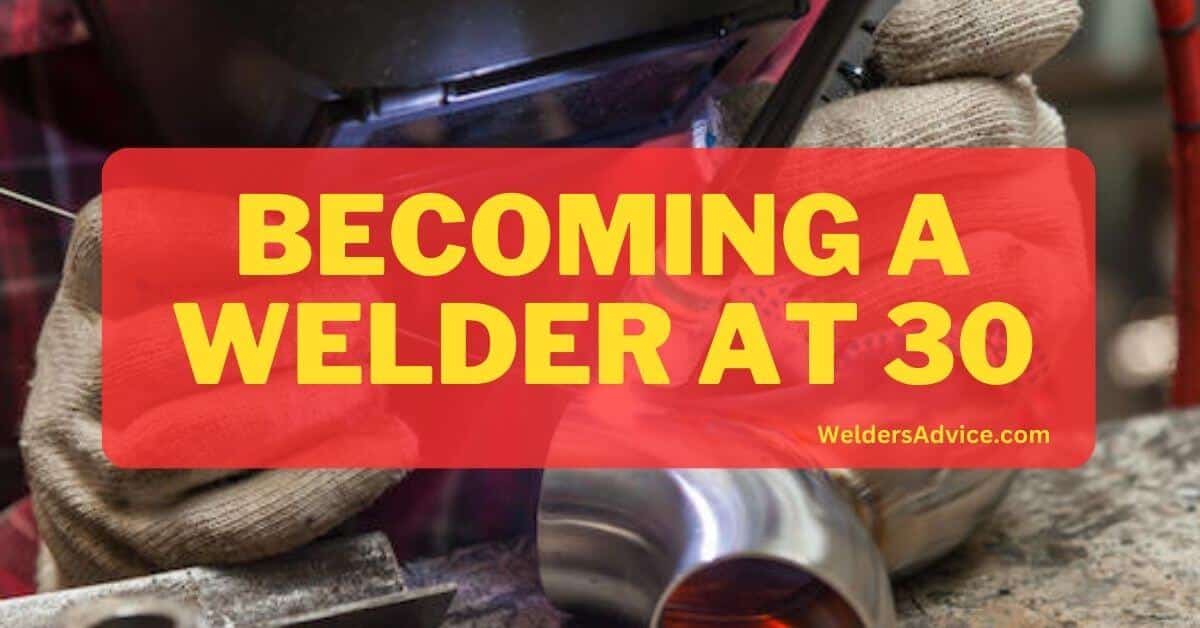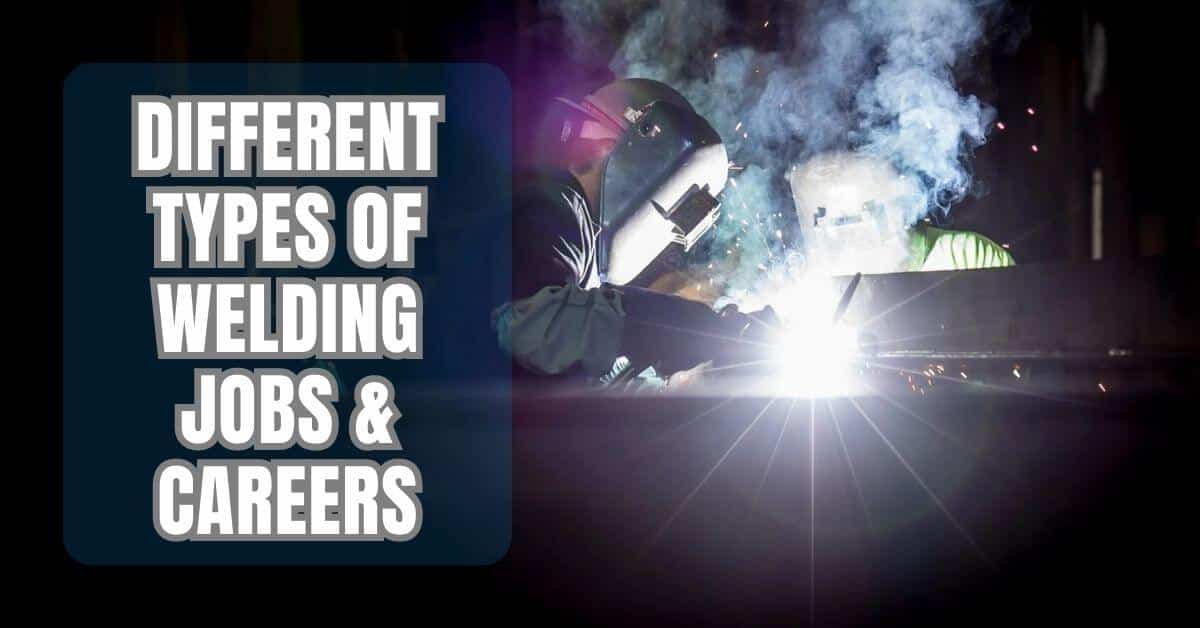Are you considering a career switch to explore becoming a welder at 30? It is never too late to learn a new skill, and welding is no exception. Welding is a beneficial and versatile trade that can lead to multiple job opportunities. With the right training and practice, you can become a certified welder at 30. This article will examine what is required to succeed as a welder at 30 and if it’s worth pursuing.
- How to Become a Welder at 30
- What is the duration of becoming a Welder?
- What are the Prerequisites for becoming a Welder at 30?
- Is it worth becoming a Welder at 30?
- What Are the Benefits of Being a Welder at 30?
- Is it possible to become a welder without prior experience?
- Types of Welding Techniques That Can Be Learnt in Midlife
- Important Skillsets Needed to Succeed in Welding
- Employment Opportunities to Becoming a Welder at 30
- Estimated Salary of Welder at 30
- What is the age range for beginning a welding career?
- Can adults in their 30s learn the skill of weldng?
- Is 30 too old to get into welding?
- Is 39 an appropriate age to begin a welding career?
- Conclusion of Becoming a Welder at 30
How to Become a Welder at 30
There are many paths to becoming a welder, and choosing the one that best fits your needs and aspirations is essential. Here we provide tips and resources to help you become a successful welder at 30.
Understand the Requirements
Before you begin pursuing a welding career, it’s essential to understand the requirements. Welders typically need a high school diploma or equivalent and technical training in welding. Many employers also require welders to have certification in specific welding techniques.
Several welding techniques include MIG, TIG, stick welding, and oxy-acetylene welding. Each technique has unique advantages and disadvantages, so it’s essential to research and choose the one that is right for you.
Get Educated
Technical training in welding can be obtained through vocational schools, community colleges, and trade schools. These programs typically take six months to two years to complete and offer a comprehensive education in welding techniques and instruction on welding safety, equipment, and materials.
Another option is to pursue an apprenticeship, which involves working under the guidance of a skilled welder to gain hands-on experience. Apprenticeships typically last three to four years and can provide invaluable experience and knowledge in the field.
Gain Experience
Regardless of your chosen path, gaining experience is crucial to becoming a successful welder. This can be achieved through internships, apprenticeships, or entry-level positions.
One way to gain experience is to seek entry-level positions in the welding industry. These positions can allow you to gain hands-on experience and learn from experienced welders. As you gain experience, you can work your way up to more advanced positions.
Network
Networking is an important part of any career, and welding is no exception. Attending industry events, joining professional organizations, and connecting with other welders can help you gain insights into the industry and potential job opportunities.
Networking can also teach you about new welding techniques, technologies, and potential career paths you may not have considered before.
Be Patient and Persistent
Becoming a successful welder takes time and dedication. Being patient and persistent in your pursuit of a welding career is essential. There may be setbacks and challenges, but with hard work and determination, you can overcome them and achieve your goals.
What is the duration of becoming a Welder?
Becoming a welder can be done in as little as six months or up to two years, depending on your chosen welding program. If you want to become a certified welder, it will typically take around two years. This includes both classroom and hands-on instruction.
In the first year of training, students will learn about safety protocols, basic welding techniques.
- Arc welding
- Mig welding
- Tig welding
- Oxyfuel welding
- Plasma cutting
- Flux core welding
They will also learn about metal lurgy, mathematics applied to welding, and blue print reading. Students will also receive some hands-on instruction to practice basic welding techniques. In year 2, students will learn more advanced techniques and certification testing. The certification test validates your knowledge and ability to apply your learned techniques.
What are the Prerequisites for becoming a Welder at 30?
Becoming a welder at 30 does require you that have attained a very specific level of education. Most programs require a high school diploma or GED before enrolling. Additionally, you must possess good manual dexterity, hand-eye coordination, and the ability to read and interpret blue prints. You may also be required to take a physical exam to ensure you are physically fit to perform the job.
Is it worth becoming a Welder at 30?
Becoming a welder is an incredibly rewarding career with many opportunities for growth and advancement. The average salary of welders ranges from $35,000 – $55,000 per year, depending on experience and location. Additionally, the welding industry is constantly growing, so there should be plenty of job opportunities for those looking to pursue a career in welding.
Becoming a welder at 30 is worth considering if you want to switch careers. You can become a certified welder and earn money in this lucrative field with the right training and dedication.
What Are the Benefits of Being a Welder at 30?

Welders can enjoy many benefits from their career. Not only is welding a financially rewarding job, but it also offers creative freedom and allows you to use your imagination to create beautiful metalworks. Welders also get the opportunity to work with a variety of materials and tools, which can make each day exciting and different. Additionally, welders can work with many clients, making it a great career choice for those looking to diversify their skillset and experience.
For those looking to become a welder at 30, the best way to get started is by researching local welding programs and seeing available resources. Many schools offer welding classes, apprenticeships, and certificates to help you get your foot in the door. Plenty of online welding courses and tutorials also help you learn welding basics. Once you have the training and certification, you can begin your career as a welder.
Is it possible to become a welder without prior experience?
Becoming a welder without prior experience is certainly possible. Many people pursue welding careers without any prior experience or formal training. However, it’s essential to understand that welding is a skilled trade and involves handling hazardous materials. So some knowledge and expertise is necessary for safe completion of projects.
Enrolling in a welding program or apprenticeship is the most common way to become a welder without experience. This will provide you with the necessary training and certifications to become a certified welder. Additionally, many employers offer on-the-job training for those willing to learn and prove themselves. With the right dedication and commitment, becoming a successful welder without prior experience is possible.
Types of Welding Techniques That Can Be Learnt in Midlife
Welding is a skill that can be learnt at any age, and those looking to learn new welding techniques in midlife can benefit from the many different types of welding techniques available. Depending on the type of work they are looking to do, many different welding techniques can be learnt. Here are some of the most popular types of welding techniques for those just starting:
MIG (Metal Inert Gas) welding is a popular type of welding that uses an electric arc and a wire feed to join two metal pieces together. It is relatively easy to learn and can be used on various metals, making it ideal for those just starting.
TIG (Tungsten Inert Gas) welding is another popular technique that uses heat from an electric arc to join metal pieces together. It is more difficult to learn than MIG welding and requires a higher level of skill and precision, but it can be used on thin materials that other types of welding cannot.
Stick welding is one of the oldest forms of welding and is still widely used today. It uses an electric current to create heat and melt two metal pieces together. Stick welding is great for larger projects and is a good option for those with limited experience.
Important Skillsets Needed to Succeed in Welding
Welding is an essential and valuable trade that requires a wide range of skills to be successful. Whether you’re just starting at 30 or have been welding for years, having the right skillset is essential for producing quality work. Here are some of the most critical skillsets needed to succeed in welding:
Safety
Welders must understand and practice safety protocols on every job to ensure their safety and the safety of others.
Precision
Welders must have high precision when working with metal pieces, as even small mistakes can lead to costly results.
Attention to detail
Welders must have an eye for detail to spot potential issues before they become major problems.
Problem-solving skills
Welders must be able to think quickly and problem solve to resolve any issues that arise during a job. They must also be able to make adjustments on the fly if needed. In addition, welders should be knowledgeable in their field and be able to recognize potential problems before they occur.
Finally, welding is a physical job, so having strength and stamina can go a long way.
Employment Opportunities to Becoming a Welder at 30
Welding is a career that provides various job opportunities in various fields, such as construction, manufacturing, and shipbuilding. Furthermore, specialized positions like underwater welding or aerospace welding are also available. The demand for welds is growing, and the U.S Bureau of Labor Statistics expects the employment for welds to increase by 3 percent between 2020 and 2030.
Estimated Salary of Welder at 30
The salary for a welder can differ depending on education, experience, and location. The U.S. Bureau of Labor Statistics reported a median wage of $45,190 for welders, cutters, solderers, and brazers. Those in the top 10 percent had earnings over $66,440, while the lowest 10 percent made less than $31,450. Specializing in a specific type of weld may lead to higher pay rates.
Also Read:
What is the age range for beginning a welding career?
The age range for beginning a welding career is typically between 18 and 30. The most common age range to start welding is 18-24, but it’s not unheard of for someone in their late 20s or early 30s to enter the profession. Many welders begin their careers by enrolling in a technical school or community college that offers welding classes. These classes provide the basic knowledge and skills to become a certified welder.
Can adults in their 30s learn the skill of weldng?
Learning welding at any age can be challenging, but it is possible to become a welder after turning 30. It may take longer to learn the skills than younger welders, but by being determined and applying yourself, you may find that you can pick up welding quickly.
Even if you have no experience with welding or related tasks, several options are available for learning how to weld. Technical schools, community colleges, and even online courses can provide you with the knowledge and skills necessary to start your welding career. Additionally, many employers are willing to offer on-the-job training for those looking to become certified welders.
Is 30 too old to get into welding?
No, 30 is not too old to get into welding. Many people pursue a career in welding when they are in their thirties or older. With the right amount of experience and training, age should not deter anyone looking to become a welder.
Is 39 an appropriate age to begin a welding career?
At 39, you are still in a great position to start your career as a welder. While it is true that most welders start their careers at a younger age, there is no set age limit when starting a welding career.
Conclusion of Becoming a Welder at 30
Becoming a welder at 30 years of age is an achievable goal. With the right attitude, preparation, and dedication, anyone can become a certified welder in just one year or less.
To succeed, having the right mindset and attitude is important. A positive attitude is essential to stay motivated and focused on achieving success as a welder. It also helps to develop a strong work ethic, hone your welding skills and learn the latest technologies. Lastly, taking welding classes or enrolling in an apprenticeship program are great ways to start your career as a welder.





